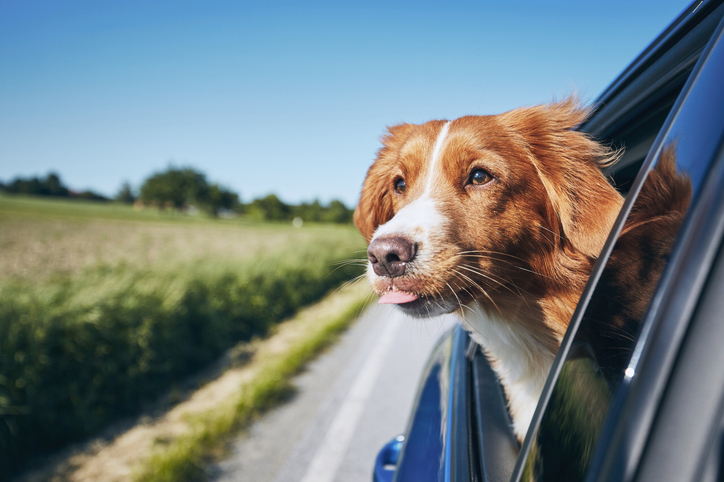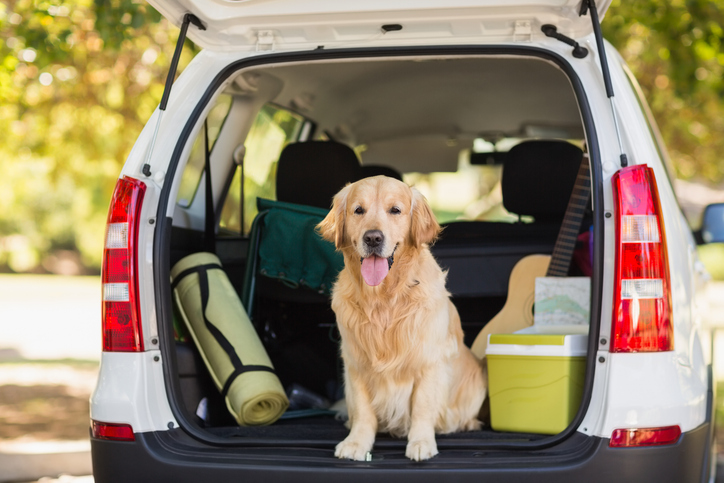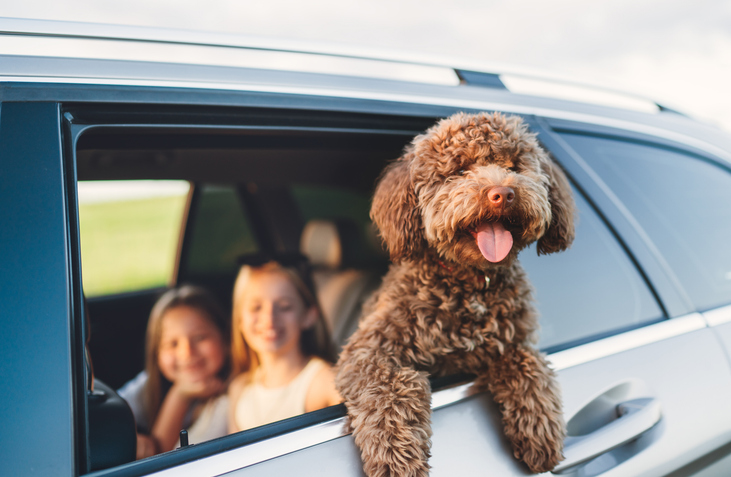Dog Car Sickness: How to Help Your Pup Travel Comfortably
For many dogs, a car journey is the beginning of an exciting adventure. But for others, it’s a dreaded experience marked by drooling, restlessness, or worse, vomiting. If your dog gets car sick or you’re dealing with motion sickness in puppies, you’re not alone. Car sickness in dogs is surprisingly common, especially in younger pups still adjusting to the experience of travel. Thankfully, there are simple steps you can take to ease their discomfort and help them enjoy the ride.

What Causes Dog Car Sickness?
Puppy car sickness is often caused by underdeveloped inner ear structures, which play a key role in balance. Many dogs will outgrow their car sickness. But even older dogs can struggle if they associate car journeys with negative experiences, such as a trip to the vet or an early traumatic ride.
Other contributing factors include:
- Anxiety or stress: Especially if your dog isn’t used to travel.
- Lack of exposure: Dogs that didn’t travel much as puppies may be more prone.
- Poor ventilation or strong smells: These can trigger nausea.
- Motion and sensory conflict: Like in humans, the brain receives mixed signals from motion, which can cause sickness.
Symptoms of Car Sickness in Dogs
Watch for these tell-tale signs your dog may be struggling with car sickness:
- Excessive drooling
- Lip licking or yawning
- Whining or crying
- Panting or restlessness
- Vomiting
- Trembling or reluctance to get in the car
Spotting these symptoms early can help you make travel more comfortable for your pup.
What to Do Before the Car Ride
Helping your dog feel better often starts before the engine even turns on. Here are some tips to prevent dog car sickness:
- Don’t feed your dog just before the trip: An empty stomach (not starving, just not full) can reduce nausea.
- Offer short practice trips: Gradually increase the length as your dog gets used to the car.
- Choose a secure, well-ventilated space: Use a crate, booster seat, or harness so they feel stable and safe.
- Use positive reinforcement: Reward calm behaviour with treats or toys before and after the journey.
- Keep the car cool and quiet: Open a window slightly for airflow and avoid strong scents or loud music.

During and After the Trip
While you’re on the road:
- Face your dog forward: Facing the direction of travel can help reduce disorientation.
- Make regular stops: Give your dog breaks to walk, sniff, and relax.
- Bring familiar items: A favourite blanket or toy can help reduce anxiety.
- Limit movement: A dog bouncing around can feel more motion and become more nauseous.
- Keep the atmosphere calm: Speak reassuringly and avoid shouting or sudden braking.
After the journey, offer water, praise, and rest. If your dog was sick, clean up with pet-friendly cleaners to prevent scent associations with future rides.
Natural Anti-Sickness Remedies
Many pet parents prefer to explore dog car sickness natural remedies before trying medication. Here are a few gentle options:
- Ginger: Known for settling human stomachs, small dog-safe amounts may help reduce nausea.
- Chamomile or peppermint: In small, vet-approved doses, these can calm nerves and aid digestion.
- Dog-calming sprays or pheromones: These help reduce stress and anxiety associated with car travel.
Note: “Natural” doesn’t always mean “safe” so always check with your vet before introducing any remedy.
When to Talk to a Vet
If your dog’s car sickness continues despite your best efforts, it’s worth speaking with your vet. They may suggest:
- Prescription anti-nausea medications
- Anti-anxiety treatments (if stress is a factor)
- Specialised behaviour training
Your vet can help find an anti sickness for dogs solution that suits your pup’s unique needs.

FAQs
What dog breeds are prone to car sickness?
There’s no hard rule, but smaller breeds, younger dogs, and breeds with sensitive stomachs (like Labrador Retrievers or Bulldogs) may be more prone.
Can you give human travel sickness tablets to dogs?
No, never give human medications to dogs unless specifically instructed by your vet. Some can be toxic or improperly dosed.
How long does car sickness last in dogs?
Many puppies outgrow car sickness as their balance develops, usually by 12-18 months. But some dogs continue into adulthood if not trained.
Is it normal for dogs to throw up in the car?
It’s common, but not “normal.” Vomiting is a sign your dog is uncomfortable and could benefit from preventative measures or treatment.
Dog car sickness can be a frustrating experience, for both you and your pet. But with a bit of preparation, patience, and the right approach, your journeys can become smoother and more enjoyable. Whether it’s tackling motion sickness in puppies or finding a dog car sickness natural remedy that works, every step you take helps your pup feel safer and happier on the road.




